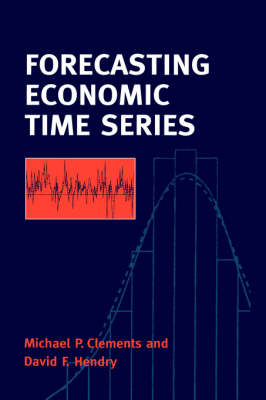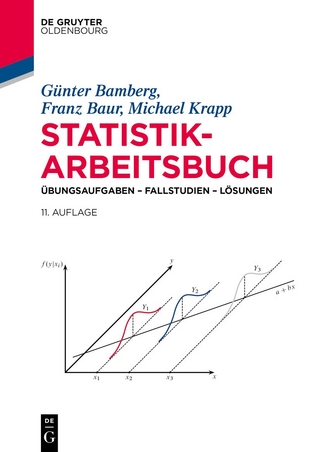
Forecasting Economic Time Series
Seiten
1998
Cambridge University Press (Verlag)
978-0-521-63242-3 (ISBN)
Cambridge University Press (Verlag)
978-0-521-63242-3 (ISBN)
David Hendry is one of the world's leading econometricians, and in this major new work he and Michael Clements provide an extended formal analysis of economic forecasting with econometric models, building in many of the features of the real world often overlooked in traditional analyses of forecasting.
This book provides a formal analysis of the models, procedures, and measures of economic forecasting with a view to improving forecasting practice. David Hendry and Michael Clements base the analyses on assumptions pertinent to the economies to be forecast, viz. a non-constant, evolving economic system, and econometric models whose form and structure are unknown a priori. The authors find that conclusions which can be established formally for constant-parameter stationary processes and correctly-specified models often do not hold when unrealistic assumptions are relaxed. Despite the difficulty of proceeding formally when models are mis-specified in unknown ways for non-stationary processes that are subject to structural breaks, Hendry and Clements show that significant insights can be gleaned. For example, a formal taxonomy of forecasting errors can be developed, the role of causal information clarified, intercept corrections re-established as a method for achieving robustness against forms of structural change, and measures of forecast accuracy re-interpreted.
This book provides a formal analysis of the models, procedures, and measures of economic forecasting with a view to improving forecasting practice. David Hendry and Michael Clements base the analyses on assumptions pertinent to the economies to be forecast, viz. a non-constant, evolving economic system, and econometric models whose form and structure are unknown a priori. The authors find that conclusions which can be established formally for constant-parameter stationary processes and correctly-specified models often do not hold when unrealistic assumptions are relaxed. Despite the difficulty of proceeding formally when models are mis-specified in unknown ways for non-stationary processes that are subject to structural breaks, Hendry and Clements show that significant insights can be gleaned. For example, a formal taxonomy of forecasting errors can be developed, the role of causal information clarified, intercept corrections re-established as a method for achieving robustness against forms of structural change, and measures of forecast accuracy re-interpreted.
fm.author_biographical_note1 fm.author_biographical_note2
1. An introduction to economic forecasting; 2. First principles; 3. Evaluating forecast accuracy; 4. Forecasting in univariate processes; 5. Monte Carlo techniques; 6. Forecasting in co-intergrated systems; 7. Forecasting with large-scale macro-econometric models; 8. A theory of intercept corrections: beyond mechanistic forecasts; 9. Forecasting using leading indicators; 10. Combining forecasts; 11. Multi-step estimation; 12. Parsimony; 13. Testing forecast accuracy; 14. Postscript.
| Erscheint lt. Verlag | 8.10.1998 |
|---|---|
| Zusatzinfo | 43 Tables, unspecified |
| Verlagsort | Cambridge |
| Sprache | englisch |
| Maße | 157 x 236 mm |
| Gewicht | 730 g |
| Themenwelt | Wirtschaft ► Volkswirtschaftslehre ► Ökonometrie |
| ISBN-10 | 0-521-63242-0 / 0521632420 |
| ISBN-13 | 978-0-521-63242-3 / 9780521632423 |
| Zustand | Neuware |
| Haben Sie eine Frage zum Produkt? |
Mehr entdecken
aus dem Bereich
aus dem Bereich
Übungsaufgaben – Fallstudien – Lösungen
Buch | Softcover (2022)
De Gruyter Oldenbourg (Verlag)
24,95 €
mit Aufgaben, Klausuren und Lösungen
Buch | Softcover (2023)
UTB (Verlag)
24,90 €
Set aus Lehr- und Arbeitsbuch
Buch | Softcover (2022)
De Gruyter Oldenbourg (Verlag)
35,95 €


